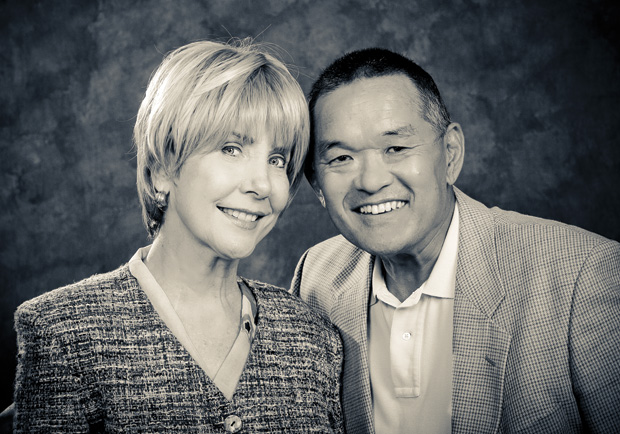For at least a decade, the evangelical world knew of a woman who went simply by "Joni." Sixteen years after the diving accident that left her paralyzed, however, she married a high-school teacher, becoming Joni Eareckson Tada. As she faced a breast-cancer diagnosis and chronic pain on top of quadriplegia, her husband of over 30 years, Ken Tada, battled depression. Joni spoke with Sarah Pulliam Bailey, managing editor of Odyssey Networks, about the Tadas' book, Joni and Ken: An Untold Love Story (Zondervan), which details how the "in sickness" part of Ken and Joni's vows has remained crucial in their marriage.
In the book, you write that "marriage only magnifies suffering." What do you mean by that?
Any marriage is going to have problems, but when you throw in a disability, it's like enlarging the problems tenfold. Disability forces problems to the surface. Suffering squeezes you like a lemon, and what comes out might be pretty bitter.
Marriage is a matter of making a sacrificial commitment. God tested Abraham by asking him to sacrifice his own son because God wanted Abraham to see what real commitment looked like. I think that's why God tests us in marriage. Christians often imagine they have a solid marriage, but when our love is put to the test, our commitment becomes real. We're faced with the question, Am I going to love this man or woman for better or for worse? I don't know that our challenges are greater than they are for another couple. The sacrifices might be greater. But with sacrifice comes a great reward of a deepened faith and trust in each other.
How did you, as someone with a physical disability, relate to your husband's struggles with depression?
At first, I was resentful. I think he just wanted me to understand what he was going through. And boy, that little bit of empathy really bound us together even more strongly. I began to sequester myself away when he'd watch Monday Night Football and pray for him. I prayed for gentle encouragement, that he would come to love God's Word, would come to enjoy prayer; that he would come to seek his validation not from other people; that he would treasure his friends. It was quite remarkable when I began to see that depression lift, as now he is committed to seeking validation from the Lord.
How is loving a spouse with a disability different from loving a child with a disability?
Children need discipline, even those with a disability. In marriage, I'm still called to think of my husband's needs before my own needs. Quadriplegia screams for attention, so you can become so self-focused if you don't watch out. Yet we're clearly called to think of our spouse's needs before we think of our own. When I got married, I thought all my needs would be met, that this man was dedicated to making me happy. I learned that you go into marriage to meet the needs of the other person. That's the high calling. When you encourage and support the other person, incidentally you'll also get your needs met along the way.
After beginning to experience chronic pain, you began to doubt the sovereignty of God, whether he intended for you to face further suffering. How did you face doubt as a couple?
We were on survival mode during those years. Our prayers to God were mainly taken from passages in Job, or desperate pleas from the Psalms: "How long, O Lord, until you answer?" Only when we began to come out of that chronic pain, and then when we started battling cancer, did we realize, as Ken likes to say, "Why not?" As humans, we have a tendency to act like we're immune to problems and struggles. It's not a sin to doubt. Yes, we had doubts, but we didn't allow them to fester.
You write that loving your spouse may be the best way of loving and serving God. Did you feel at any time that your ministry might come to threaten your marriage?
There were times I wish I hadn't crowded my schedule so much. When my husband was emotionally distant, I would just go off on one of my trips. It was convenient. Looking back, I'm sorry I did that. Instead, I started to say, "I understand. I'm here with you. I don't blame you."
Love in marriage is either going to grow or it's going to die. It can never just stand still. We're more of a couple now than we were 20 years ago. It's not just Joni any more: It's Joni and Ken.











